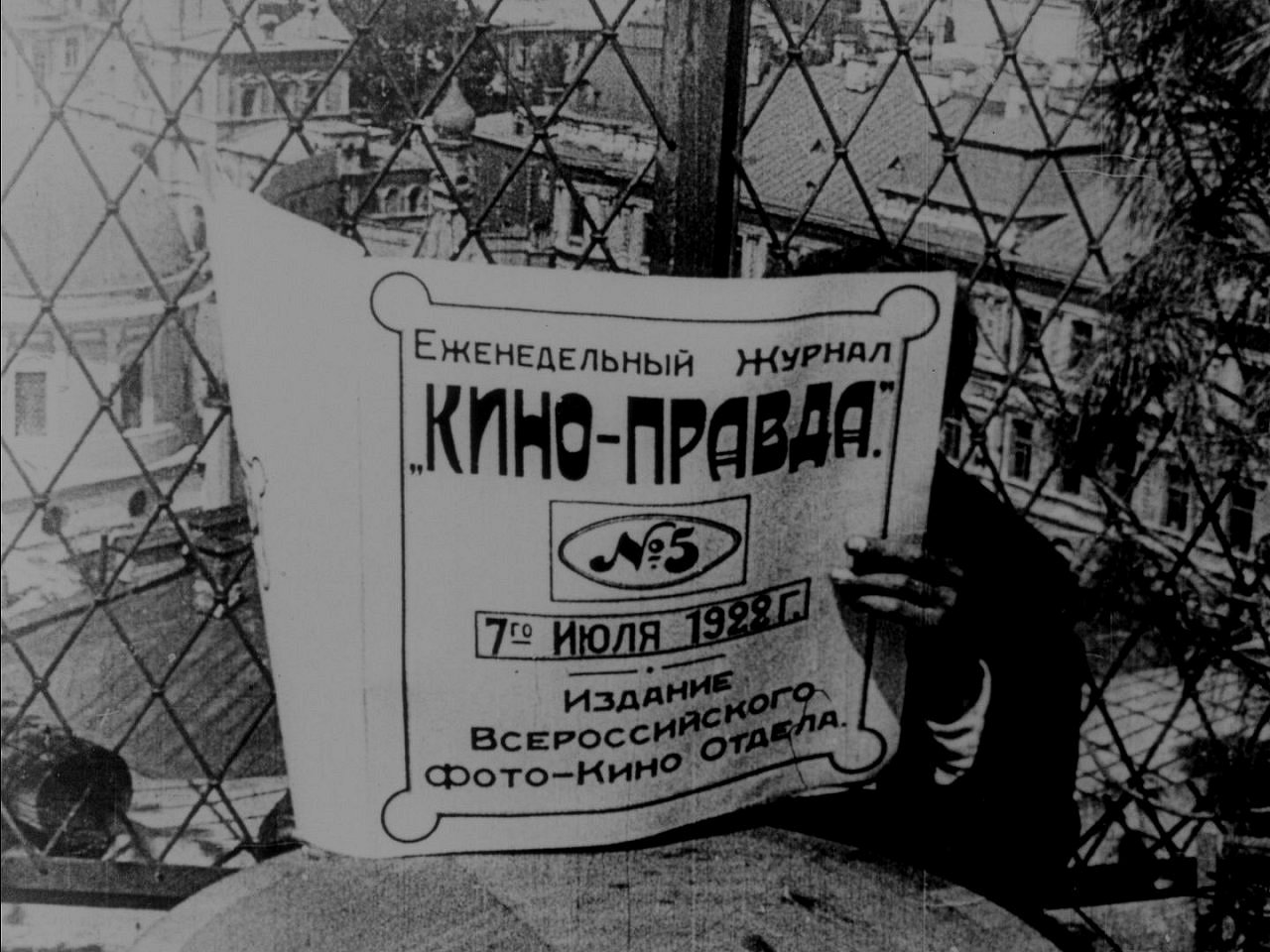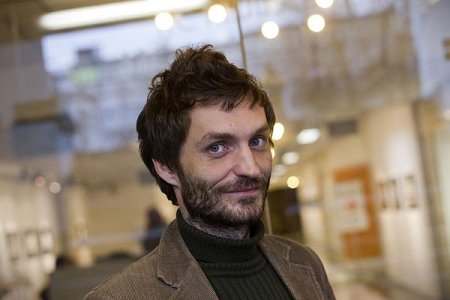Collection of newsreels by Dziga Vertov – Kinonedelja and Kino-Pravda
18.12.2023

David Abelevich Kufman, known under the pseudonym Dziga Vertov (1896-1954), was a Soviet director, screenwriter and theoretician of documentary film, as well as one of the pioneers of documentary film language. Inspired by the ideas of the revolution, he entered the world of Soviet documentary film in 1918 and gradually became known as a lively innovator and experimenter of film language. Vertov's films A Sixth Part of the World (1926), Enthusiasm: A Symphony of Donbass (1930), Three Songs about Lenin (1934) and especially Man with a Movie Camera (1929) remain models for later generations of documentary filmmakers.
As early as 1967, the Austrian Film Museum began collecting films, texts, photographs, posters and other documentation in connection with Dziga Vertov. His work and achievements have been key to the program policy of the Film Museum from the very beginning. While acquiring archival material, the museum established close relations with his widow and artistic collaborator Yelizaveta Svilova. Between 1970 and 1974, Svilova donated part of Dziga Vertov's personal collection and documents to the institution, which form the basis of today's Vertov collection in the Austrian Film Museum. Today, this resource contains about 100 film elements, 170 original manuscripts (notes, sketches and montage schemes of Vertov), 200 photographs (personal photographs and photographs related to his work), 600 newspaper articles from around the world (mainly from the former Soviet Union), 33 original posters and many other documents.
In 1918, Vertov assumed administrative responsibility for the first Soviet film series of 43 film newsreels under the name Kinonedelja. This series also represents Dziga Vertov's first real project in cinematography. Between May 1918 and June 1919, a total of 43 newsreels were published, each of which contained an average of 5 to 7 different segments. Vertov joined the project as a secretary, but by the fall of 1918 he had assumed full responsibility for the series. Although in Kinonedelja Vertov's film language has not yet been developed, the footage provides the viewer with invaluable snapshots of life in young Soviet Russia, which was then caught in the storm of civil war.
A major step forward for Vertov was a series of 23 film newsreels titled Kino-Pravda, published between May 1922 and March 1925. The series was named after Pravda, the Soviet daily newspaper founded by Vladimir Lenin. Newsreels which were otherwise published irregularly, reported on very diverse topics and, especially from the 13th issue onwards, acted as a laboratory for the development of film vocabulary. It was during this period that Vertov developed his montage techniques and honed his theories about film as an art form that is most suitable for the masses. The development of the series was characterized by the use of an increasingly rich repertoire of elements including archival footage, news footage, animation, experiments with moving intertitles, reenactments and staged sequences. The series culminated in imaginative treatments of individual themes, such as the pioneering organization, Lenin's death, or a farmer's visit to the city.
The series of Kino-Pravda newsreels still represents an important document of its time and innovation, as well as the dimensions of the film medium and its depiction. The series also directly influenced the development of documentary film in the following decades. The experimental French documentary movement cinéma vérité, or "truth cinema", among other things, stems from the approach and creative concept of Dziga Vertov. In addition, his approaches strongly influenced the New Wave movements in the revolutionary sixties of the twentieth century.
All parts of Kino-Pravda, except for the lost number 12, are freely accessible to viewers today. In 2017 and 2018, the Austrian Film Museum carried out a comprehensive digitization and translation of all existing newsreels of this series, which are available for viewing on their website:
https://vertov.filmmuseum.at/en
Jurij Meden is the former program manager of the Slovenian Cinematheque, translator, editor and publicist, one of the founders of the film, politics and poetry magazine KINO! and a filmmaker. He also worked in the USA, where he was the program curator of the prestigious George Eastman Museum. Jurij Meden is currently the curator and program manager at the Austrian Film Museum.





